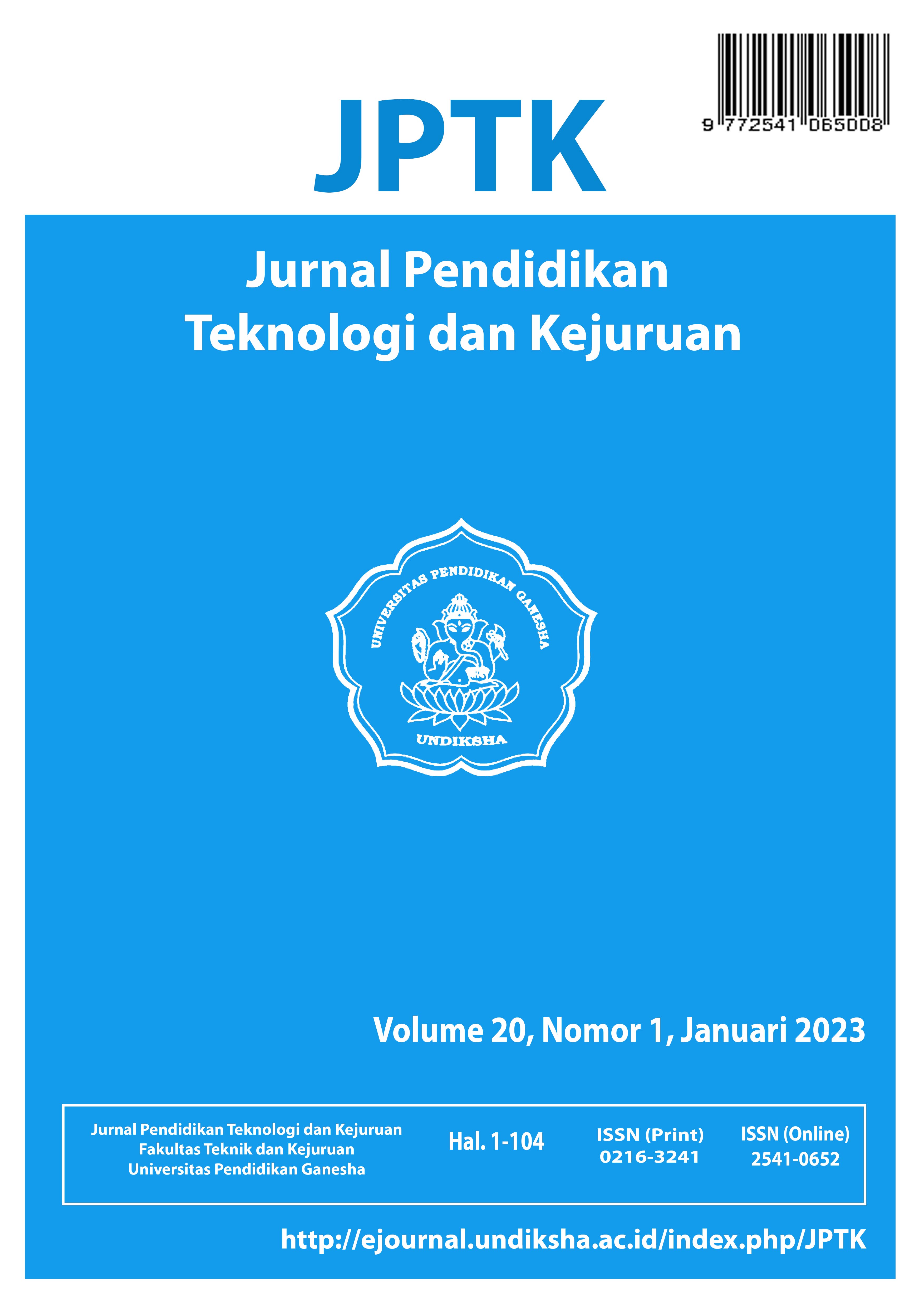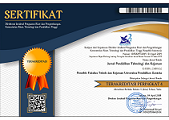PENGEMBANGAN KONTEN PEMBELAJARAN MATA KULIAH BASIS DATA BERBASIS MICRO-LEARNING DI PROGRAM STUDI S1 ILMU KOMPUTER-UNDIKSHA
DOI:
https://doi.org/10.23887/jptkundiksha.v20i1.54572Abstract
This development research aims to develop learning content for the Database course by applying the micro-learning method in the Computer Science Study Program, Faculty of Engineering and Vocational, Undiksha. Micro-Learning is an evolutionary form of online learning and can be considered an innovative approach to 21st-century digital learning. Micro-Learning is a learning method in which learning content is presented in the form of short bite-sized pieces that focus on one learning topic. The development procedure used is the Lee & Owens development model with five stages, namely the analysis stage, the design, the development, the implementation, and the evaluation stage. In this study, only the first three stages were carried out because based on the curriculum, database courses were offered in even semesters. Learning content is developed in video form with a maximum duration of 6 minutes. The resulting learning video product is called a micro-video because of its short duration. The learning material developed is the concept of introduction to databases and database system concepts. There are seven micro-videos that have been successfully developed, of which six micro-videos contain learning material and an intro micro-video which contains an introduction to the course. A micro-video contains a discussion of material for one learning indicator. To determine the level of validity of the micro-video, material tests, and media tests were carried out by experts. From the results of the feasibility test by material experts, it was obtained at 93.33%. While the results of the due diligence by media experts obtained a result of 88%. These results state that micro-video products are in the category of very feasible to use. In the future, it is hoped that more learning content will be developed using the micro-learning method as a new technology in learning.
Downloads
Published
Issue
Section
License
Authors who publish with the JPTK agree to the following terms:- Authors retain copyright and grant the journal the right of first publication with the work simultaneously licensed under a Creative Commons Attribution License (CC BY-SA 4.0) that allows others to share the work with an acknowledgment of the work's authorship and initial publication in this journal
- Authors are able to enter into separate, additional contractual arrangements for the non-exclusive distribution of the journal's published version of the work (e.g., post it to an institutional repository or publish it in a book), with an acknowledgment of its initial publication in this journal.
- Authors are permitted and encouraged to post their work online (e.g., in institutional repositories or on their website) prior to and during the submission process, as it can lead to productive exchanges, as well as earlier and greater citation of published work. (See The Effect of Open Access)












